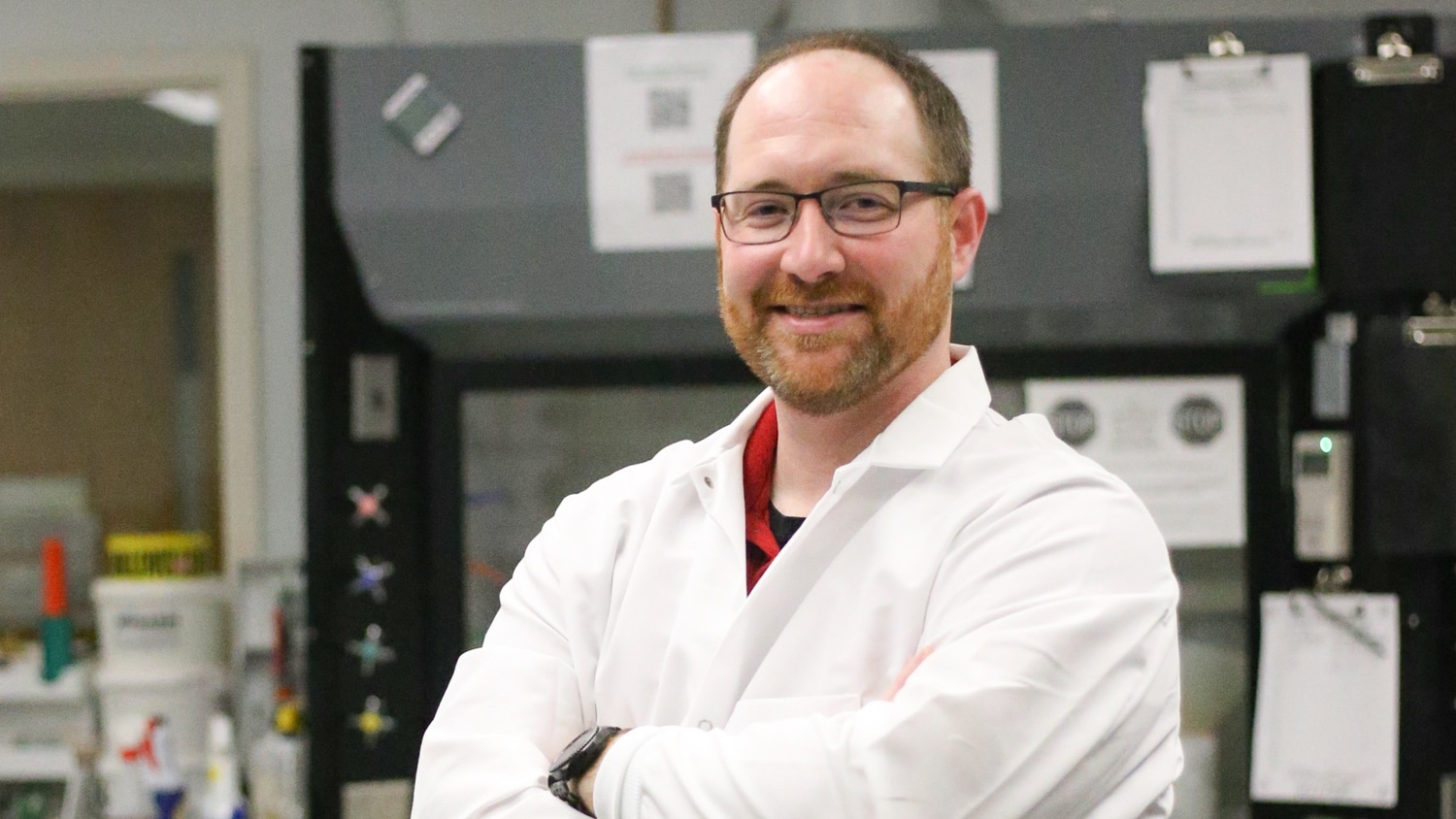“I’m teaching the classes I sat in,” Assistant Professor of Textile Engineering, Chemistry and Science Bryan Ormond says. “To be recognized in that manner, to continue the legacy that I came into from the people that taught me? It’s hard to put into words what that means to me.”
For Ormond, being named a 2024 Alumni Distinguished Undergraduate Professor goes beyond just his unrivaled commitment to the success of his students — it’s a reflection of his ongoing mission to give back to the community that built him.
The award is one of the most prestigious undergraduate teaching awards at NC State, and recognizes faculty that have provided distinguished service in support of undergraduate students. Along with a new title of “Alumni Distinguished Undergraduate Professor,” Ormond will be recognized at the Alumni Association event and receive a cash award.
The science of protecting firefighters
Twenty one years after walking on to the Textiles campus as a first-year student, Ormond has earned himself a spot as one of the world’s leading experts in the science of protecting firefighters. It’s the real-world impact of his research and the difference it has made in the lives of these first responders that makes his work unique.
“The work we do on firefighter protective clothing and equipment, trying to decrease their exposure to harmful things, trying to make sure they’re protected and can do their job,” Ormond explains. “It doesn’t just stay in the lab, it doesn’t stay in a publication. It’s literally across the backs of firefighters that are in the field today.”
Making sure the work he and his team are doing gets from the lab to the field is a big part of Ormond’s mission.
“Let’s disseminate this information. Let’s get out to the firefighters and meet them in the field, meet them in the station and talk to them where they are,” he says. “We’re going to firefighter specific trade shows and conferences, sharing our information as much as we can.”
But it’s not just the results of his research that make it to the field, but the process itself.
“You can only do so much in the lab,” Ormond explains.
His team recently ran two different field tests, burning down rooms in a controlled environment and taking samples from the real firefighters who went in to investigate.

“We were looking at how the PPE [personal protective equipment] was actually protecting them from the smoke and the particulates,” Ormond says. “We’re really focused on growing in this area to be able to connect what we do in the lab to what’s happening to firefighters on the scene.”
Building connections is what Ormond does best, not just in his research, but also in the community he has grown alongside it.
Building a research community
“There is no other teacher at the Wilson College that will go above and beyond the expectations for each and every one of their students like Dr. Ormond does on a daily basis,” writes one of Ormond’s former students in a letter sponsoring him for the award. “Without him, I would not be in the place that I am today and without a doubt know that every student that has had him as a teacher, advisor, mentor, research manager and more would say the same.”
It is easy to see how earning a spot on Ormond’s team has become a sought after position for students in the college, both because of the work he is doing and the space he has created for students to learn and grow.
“I hope it’s not just the work, but also the culture,” Ormond explains. “With both the grad students and the undergrad students I hope when people talk to them they see that they’re interested in what they’re doing, that they’re excited about what they’re doing but also they enjoy where they’re at.”
His goal is to create a community of students and researchers all working towards a common goal — and lifting each other up in the process.
“We’re building up that culture of supporting each other,” Ormond says. “Having upper-level students in place that have been through our program and understand what we do and how we treat each other, so even if I’m not directly the one that gets to be there we still have that support and mentorship.”
It’s a legacy, one he discovered during his own time as a student at the college, that Ormond is now growing.
“We’re all products of people that mentor us and I’ve had some really good mentors along the way,” Ormond says. “So for me it’s how do I pay that back to my students now?”
This post was originally published in Wilson College of Textiles News.
- Categories:



